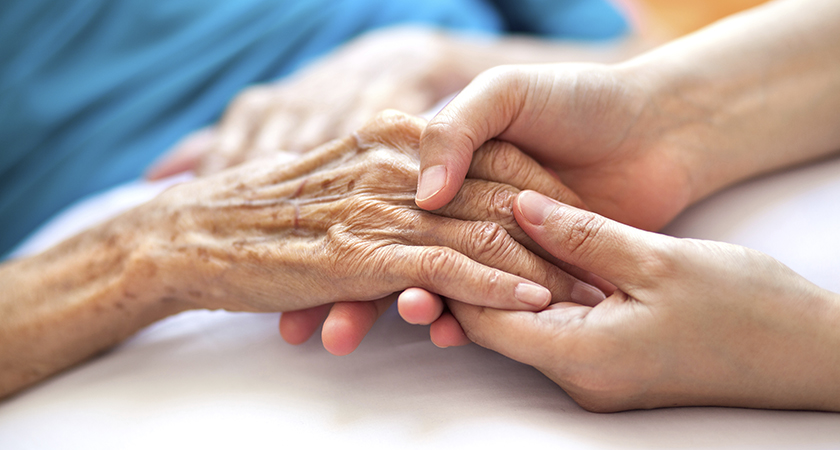THE IRISH Hospice Foundation has called for one person to be allowed to sit with dying family member where possible.
The foundation has urged the Government and HSE to reevaluate the restrictions implemented during the Covid-19 crisis, saying nobody should have to die alone.
Irish Hospice Foundation chief executive, Sharon Foley, told The Irish Examiner that a loved one dying alone creates "a lasting memory of distress for families" and impacts on their bereavement, saying there is "only one chance to get end-of-life right".
The IHF have sought clarification from the HSE regarding the end-of-life restrictions, and have said that while visiting restrictions are necessary to slow the spread of the virus and protect lives, one family member should be able to provide comfort to a dying loved one even if personal protective equipment is needed.
 "here is "only one chance to get end-of-life right"- Irish Hospice Foundation (Picture: iStock)
"here is "only one chance to get end-of-life right"- Irish Hospice Foundation (Picture: iStock)"We appreciate hospitals and other care settings will need to assign staff to train families in the donning and doffing of PPE and that this training and support requires time and resources," Ms Foley told The Irish Examiner.
The foundation is suggesting that, where possible, limited visitations should be allowed in order to bring comfort to the dying and their families, and that this visitation can be facilitated through a named person such as a social care worker, in order to "alleviate some distress for families".
Where there is no visitation possible due to infection control reasons, the IHF have recommended that hospitals explain to distressed families in a clear way the reasons for this, and ensure that a dying person is not left on their own, where a staff member can bring "comfort, compassion and company" to that person, and assure the family that their loved one was not alone at the end.
"We appreciate hospitals and other care settings will need to assign staff to train families in the donning and doffing of PPE and that this training and support requires time and resources," said Ms Foley.
There are high concerns for residents of nursing homes and residential care homes across the country, where a large number of clusters of cases have been identified.
Speaking at the daily press briefing yesterday, Thursday 16 April, Dr Tony Holohan, Chief Medical Officer for the Department of Health, said:
"The data clearly shows that there are two very different experiences of COVID-19 in Ireland today. In the population at large, the virus is contained and effectively suppressed.
“However, the experience of the disease in long-term residential care settings continues to be a source of concern.
“In order to protect the vulnerable the first task was to suppress the virus in the population at large. We are increasingly confident that we are achieving this. All of our efforts now need to be on extinguishing COVID-19 in our community residential settings, including nursing homes.”
The Irish Examiner reports that the IHF's recommendations have been sent to the health authority's acute hospital, primary care and older people divisions as well as Nursing Homes Ireland.

